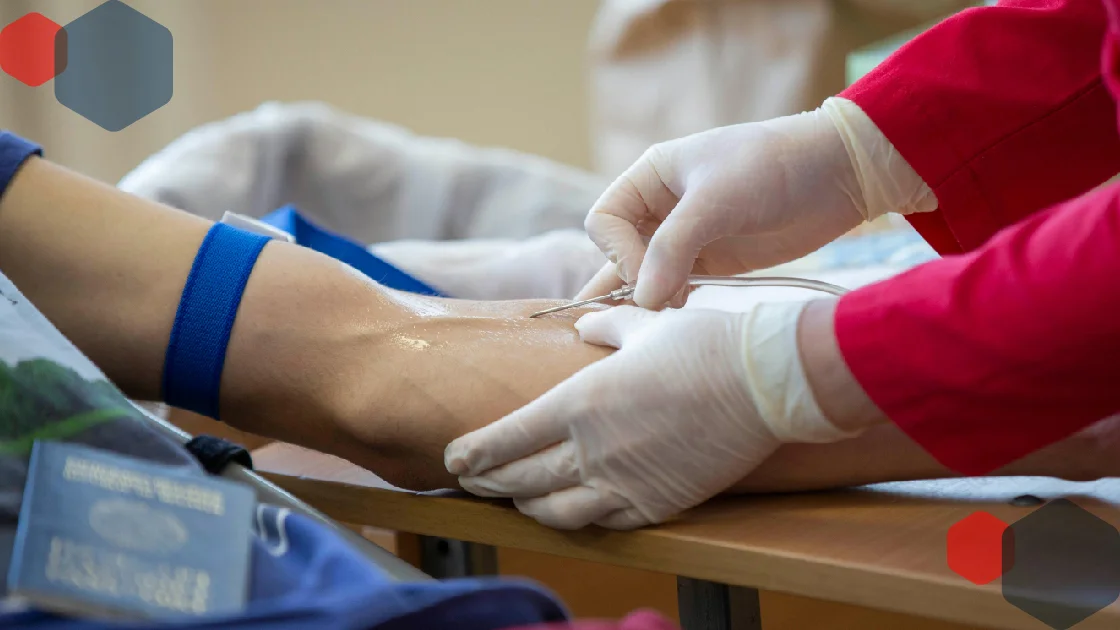Is Eliquis a game-changer in blood thinning, or does it carry risks? A lot of people use Eliquis medicine for thinning blood or for preventing blood clotting. This medicine is popular among many patients due to its magical effect in lowering the risk of clot formation. However, concerns about potential side effects and costs have sparked a heated debate.
In this blog post, we will completely explain this topic “What is Eliquis?” We will provide a complete guide on its uses, side effects, and working. On the basics of research knowledge, we will give you a guide on how you can purchase Eliquis at affordable prices.
What is Eliquis?
Eliquis is an anticoagulant medicine that is used for thinning blood, especially for those who have a high risk of clot formation. Its generic name is Apixaban. It belongs to direct oral anticoagulants (DOACs). It is an advanced and innovative drug.
What makes it different from other anticoagulants such as Warfarin?
- Usually, other anticoagulants reduce all enzymes that play their role in clot formation. Factor Xa is an important enzyme that helps in clot formation, and Eliquis acts as an inhibiting drug for factor Xa. Thus, it reduces the chances of clot formation.
- Its ease of use and low risk of dietary interactions make it a preferred choice over other anticoagulants.
To completely know the answer to this question “What is Eliquis?” Read the remaining part of the blog to get the answer to this question.
What is Eliquis Used For?
Doctors and physicians mostly cardiologists prescribe Eliquis in their routine practice. Usually, cardiac patients and thrombocytopenic patients take this medicine in their daily routine. They do so to reduce the chances of clotting in their body.
Some specific medical conditions for which Eliquis used are as follows:
Atrial Fibrillation (AFib)
Atrial fibrillation means irregular heartbeats. It is a cardiac illness in which patients take this drug to reduce the chances of thrombus formation.
Deep Vein Thrombosis (DVT)
In DVT, clots form in deep veins mostly in the legs. It occurs due to standing and traveling for a long time. Patients take Eliqus to decrease the chances of DVT.
Pulmonary Embolism (PE)
After DVT, the clot can move to the lungs and can cause embolism. This condition is called pulmonary embolism. A lot of patients take this medicine to prevent themselves from PE.
Post-Surgery Clot Prevention
Usually, there are a lot of chances of clot formation after surgery. That is why, a lot of surgeons prescribe Eliquis for post-surgery patients.
Bed-Ridden Patients
Patients who are bedridden for months or years have a lot of chance of clotting in their bodies. That is why, doctors recommend this medicine for thinning of blood.
Hypertensive Patients
As we know high blood pressure patients have thick blood. That is why, some doctors prescribe Eliquis if BP is under control.
How Eliquis Works?

Whether you are a doctor or a patient, you should know the workings of Eliquis. It is an anticoagulant and works by inhibiting the clotting factors. Almost all clotting factors are formed in the liver including factor Xa.
It blocks the factor Xa and reduces the formation of fibrin. Fibrin is also a protein that stabilizes the clot. When fibrin is not formed, the clot will not be stable, so the clot will not form. So, it is the working mechanism of the Eliquis drug that you should know before taking or prescribing the medicine.
Eliquis Dosing & How to Take It
The dose plays an important role in effecting the drug. For example, if a patient does not take enough doses, the drug will not be effective for the treatment. Similarly, when a patient takes a high dose, it will have serious side effects on the patient.
Eliquis dosing depends on the age and condition of the patient. For example:
- Atrial Fibrillation (AFib): 5 mg twice daily (2.5 mg twice daily for patients over 80 or with kidney issues).
- DVT/PE Treatment: 10 mg twice daily for 7 days, then 5 mg twice daily.
- Post-Surgery Prevention: : 2.5 mg twice daily for 12-35 days.
The above statistics show that Eliquis dosing varies from patient to patient. That is why, you should consult your doctor before taking this medicine. Remember that all medicines are not suitable for everyone. That is why, do not take this medicine at your risk or on the recommendation of a friend or anyone except your doctor.
Eliquis side effects: The Good and the Bad

As you know every medicine has its side effects even a simple paracetamol. So, you should know about Eliquis’s side effects before taking this drug. Overall side effects of this medicine depend on the dosage and condition.
Some common side effects of Eliquis are mentioned here:
- Mild bleeding (nosebleeds, gum bleeding)
- Nausea
- Dizziness
- Bruising easily
Some serious side effects of Apixaban are described here:
Serious Side Effects
- Internal bleeding (gastrointestinal or brain hemorrhages)
- Heavy menstrual bleeding
- Allergic reactions (swelling, difficulty breathing)
You will notice that in both side effects bleeding is common. As we know Eliquis inhibits clot formation so it can increase the bleeding in the patient.
Statistics
Research shows that about 3-5% of Eliquis users face mild bleeding issues. On the other hand, 1-2% of users face serious bleeding (AMPLIFY Trial, 2013). Patients with kidney disease or a history of ulcers are at higher risk.
How to Manage Side Effects
No doubt, the above side effects will threaten you to use this medicine. That is why, we will provide you with some tips to manage the minor side effects. Minor bleeding: Apply pressure to bleeding areas and do not engage yourself in high-risk activities.
Routine monitoring: Eliquis does not need repetitive blood tests, but you should do regular checkups for safety. You should consult your doctors in case of severe side effects. Do not take risks in case of severe symptoms.
Eliquis Price & Where to Buy
After getting the answer to “What is Eliquis?”, you must want to know its price and spot for purchase. We will provide you with a complete guide for purchasing this medicine in any country. Firstly, you should know the Eliquis price in different regions of the world. The cost of this medicine varies from region to region. Here, we can provide you with an estimation idea of the cost:
- United States: ~$550 for a 30-day supply (brand name)
- Canada:~$120-200 for a 30-day supply
- United Kingdom: ~$80-150 for a 30-day supply
How to Purchase Eliquis?
- Go to an online medicine store and search “Eliquis” or its generic name “Apixaban”.
- Select the number of tablets you want to buy
- Upload the picture of the doctor's prescription or some brands want a prescription while confirming the order.
- Add to cart and check out to the bill payment.
Statistical Data & Studies
- Over 10 million patients worldwide take Eliquis for stroke prevention and clot treatment.
- The ARISTOTLE study found that Eliquis reduces stroke risk by 21% compared to Warfarin.
- Major bleeding incidents are 31% lower with Eliquis than with Warfarin.
- Eliquis costs 75% more in the US than in Canada, prompting many Americans to seek international pharmacies.
Conclusion
What is Eliquis? Eliquis is one of the most effective and convenient blood thinners available today. Its lower stroke risk, fewer dietary restrictions, and reduced bleeding risks make it superior to older anticoagulants like Warfarin. However, the risk of serious bleeding and its high cost remain concerns for many patients.
Would you take Eliquis, or do you prefer older blood thinners? Share your thoughts below!


